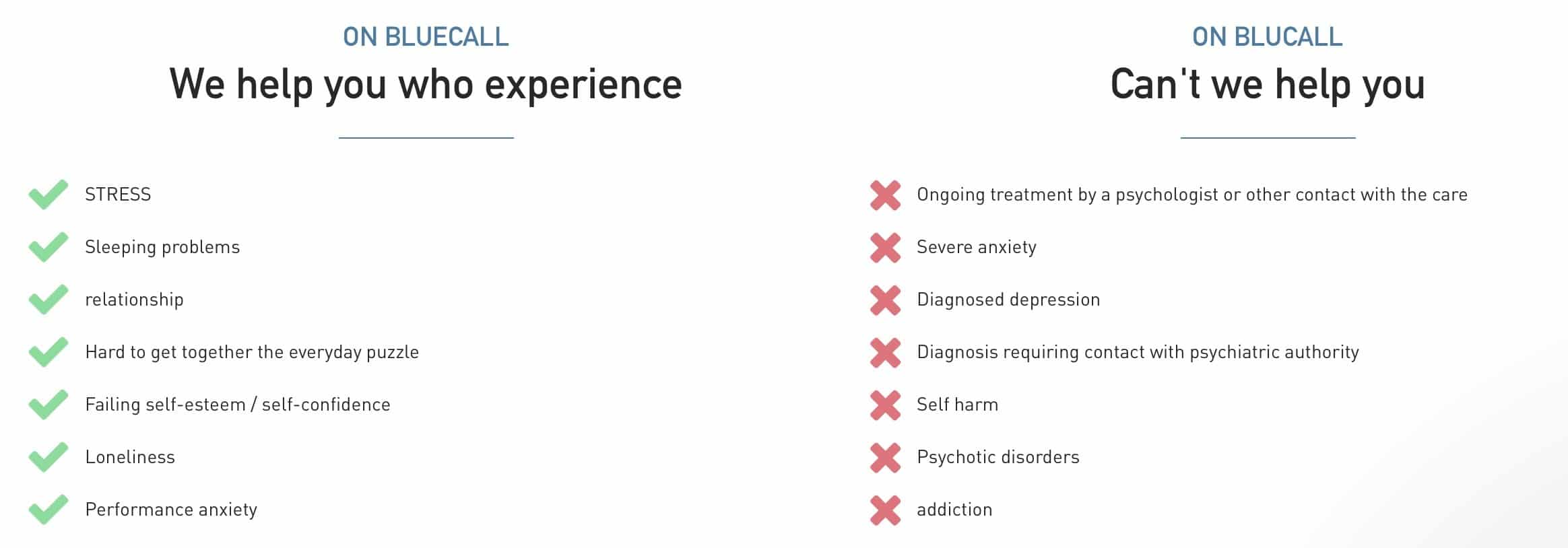10 Telepsychiatry Companies For Your Mental Health
Table of contents

It’s the 20th anniversary of perhaps the greatest piece of television ever recorded – The Sopranos. It was such a realistic depiction of the mob that the real mob members thought that the show’s creators were talking to someone actually in the mob. The premise of the show is that the mob boss, Tony Soprano, is seeing a psychotherapist to deal with the stress of running his criminal enterprise. In Tony’s world, seeing a shrink is clearly seen as a sign of weakness, a theme that surfaces throughout the show as various individuals hear about his therapeutic banter. Maybe if the show was created today, Tony would be sneaking out back behind The Bing for a smoke and a little time on his telepsychiatry app flirting with Doctor Melfi and complaining about how everything is vaffanculo.
We previously looked at startups providing computerized cognitive behavioral therapy to the masses, and companies using applied AI to assist people with mental health issues. In these use cases, technology helped patients get diagnosed, find personalized treatment, and access affordable therapies. However, a large percentage of mental health patients are fine with diagnosis, treatment, and costs, but still struggle to find an actual therapist they can sit down with because there just aren’t enough psychiatrists to go around. There are a few reasons for this shortage of professionals:
- Insurance policies do not cover mental conditions as extensively as they cover physical ones
- A lack of federal funding in the US has capped the number of new psychiatrist residencies for the past 20 years creating a bottleneck in their supply
- With increased social awareness and acceptance of mental health conditions, more people ask for help than ever before
- Many psychiatrists are retiring while too few new professionals join the ranks
- In many cases, available therapists aren’t at the location where they are needed
- An increasing number of people are affected by mental illnesses in general
In this article, we’re looking at companies offering telepsychiatry – the delivery of psychiatric assessment and care through remote communications technology, usually videoconferencing. While researching startups for this article, we found a number of larger telemedicine companies that offer telepsychiatry services as well like MDLive which came up a lot during our research. We previously wrote about some of these companies in our past article titled “8 Telemedicine Startups to Watch”. Today, we’re going to focus on 10 telepsychiatry companies that offer remote therapy as a lone product offering.
Talkspace
Founded in 2012, New Yawk startup Talkspace has raised $56.7 million to develop an online psychotherapy platform that matches patients with therapists using proprietary algorithms. After choosing a plan and completing a web-based assessment, Talkspace recommends patients the three best therapists to choose from and therapy begins in 24 hours. Patients can write to their therapist at any time and receive regular responses once or twice a day. Subscription plans include general unlimited messaging therapy ($49 per week), couples’ therapy ($79 per week), and a service targeting teenagers dubbed Talkspace for Teens ($49 per week).

This is a significant discount compared to in-person treatment which can cost $75-$150 per session, going up to $200-$300 in large cities. Talkspace also offers mental healthcare packages to employers, promising to increase productivity and save 5.4 days of work lost to depression per employee per year on average. A joint study with Columbia University has shown a 50% drop in depression and a 57% drop in anxiety after four months of using the service. Talkspace has a network of over 3,000 licensed therapists that have helped more than 1 million people to date.
Update 05/29/2019: Talkspace has raised $50 million in new funding to accelerate the growth of its commercial business. This brings the company’s total funding to $106.7 million to date.
Able To


The service, provided by a network of 600 certified therapists and coaches, is covered by a number of U.S. national and regional health plans. Able To is in expansion mode, and has just acquired Joyable, a coaching service geared towards corporate employees, this month.
Ieso Digital Health

Regroup Therapy
We covered Regroup Therapy two years ago when it was a budding provider of psychiatrists via virtual reality channels. The Chicago, Illinois startup that was founded in 2011 has raised additional funding since then, bringing its total to $13.9 million. Dropping the VR glasses, the company has decided to refine its telepsychiatry platform and target healthcare facilities. Regroup lends specialists to understaffed medical institutions using a proprietary communication platform that also manages scheduling, reporting, patient surveys, and prescriptions, and calculates treatment analytics. A particularly important use case today is Regroup’s assistance in the treatment of the US opioid crisis. The company not only provides specialists to treat addicts in under-served areas, but helps with the prescription of controlled medications that have been proven to work effectively with opioid use disorder.
WeCounsel Solutions
Founded in 2011, Chattanooga, Tennessee startup WeCounsel Solutions has raised $4.1 million to develop a communications hub connecting available therapists with health institutions that need more capacity. WeCounsel acts as a virtual marketplace, selling the availability of its network of mental health professionals to clinics that can book hours through the platform.

The company also targets primary care physicians making a case for integrated mental and physical care – many undiagnosed people suffering from mental health conditions end up seeking treatment in emergency rooms or with primary care physicians. Basic video conferencing and session requests are free for everyone, and professional access to other perks of the platform start at $99 per month per user. The difference between Wecounsel and Regroup is that Regroup’s therapists are employees of Regroup while Wecounsel is just a marketplace connecting patients with specialists.
Workit Health
Founded in 2015, Ann Arbor, Michigan startup Workit Health has raised $3 million to develop a mobile platform for treating addiction over live chat and video. Workit gives patients access to board-certified doctors, therapists, and coaches able to run online therapies and also offers medication for opioid and alcohol addiction in Michigan and California. Patients can receive help from recovery coaches concerning drinking, drugs, smoking, eating issues, and sex and porn addiction. The platform also offers 5-minute daily interactive courses that are scientifically proven to be effective in the recovery process. Workit’s app is downloadable from the App Store and Google Play and the company also offers enterprise packages to health plans and employers.
Encounter Telehealth


Visits are conducted through a secure videoconferencing app with a typical patient seen 12 times over the first year of treatment. The team helps providers identify residents in need of care, implement the video platform, and schedule patients, taking on back-office roles for the medical institution. The startup’s platform is currently offered in 19 states.
BlueCall
Founded in 2016, Stockholm, Sweden startup BlueCall has raised $690,000 to develop a mobile app that delivers anonymous phone assistance to people with behavioral issues. The startup offers life coaching sessions that deal with stress, sleeping problems, relationships, loneliness, or performance anxiety, but doesn’t provide ongoing therapy for more severe mental illnesses like addiction, severe anxiety, or depression.

Therapists are handpicked for patients, and the length of engagement is defined jointly on the first session. Sessions last 45 minutes and cost about $22 for every half hour attended. BlueCall also works with companies looking to prevent mental health issues – and resulting production loss – in their workforce and has partnered with car manufacturer Renault. The anonymity of the whole thing makes it quite appealing for all the mob types out there.
Competencer
Founded in 2014, Stockholm, Sweden startup Competencer has raised $320,000 to develop a digital platform that matches people with the right coach, therapist, or psychologist. Clients can browse provider profiles by specialty topics such as career, lifestyle, or personal development, and choose the professional they’re most comfortable with. Alternatively, Competencer can match new clients with the right provider upon request. The platform takes care of scheduling, payment, and the video sessions, and users have a dedicated profile page where they can track their development. Competencer doesn’t charge patients for the service, they only need to pay the mental health specialist’s fee. Specialists pay a monthly fee of $11-$32 for using the platform and a 5-15% variable fee on rates charged, depending on the type of subscription they choose.
Selfapy

Conclusion
Telepsychiatry helps democratize access to mental health treatments in a variety of ways, from decreasing cost to increasing accessibility. These online platforms can also help providers deal with back-office administration, freeing up psychiatrists to spend all their time talking to patients instead. Increased efficiency results in lower hourly rates compared to face-to-face therapy, and also makes it easier for people to find treatment – like the many schizophrenics that email us. Most of these startups have specific packages geared towards corporate employers which is unsurprising, considering employee mental health costs are rising twice as fast as all other medical expenses. There is still a long way to go before the global mental health crisis gets solved, but online therapy is definitely a step in the right direction. “Remember when” is the lowest form of conversation said Tony Soprano once. And maybe soon, we’ll remember when there used to be a time when not everyone had access to mental health professionals.
Sign up to our newsletter to get more of our great research delivered straight to your inbox!
Nanalyze Weekly includes useful insights written by our team of underpaid MBAs, research on new disruptive technology stocks flying under the radar, and summaries of our recent research. Always 100% free.














